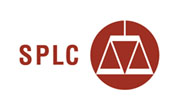Submitted by Peter Denison
 A Lawyer’s Journey: The Morris Dees Story. Morris Dees and Steve Fiffer. 2001.
A Lawyer’s Journey: The Morris Dees Story. Morris Dees and Steve Fiffer. 2001.
This book was sent to me by the Southern Poverty Law Center because of my long standing financial support. Morris was the son of an Alabama farmer who had always been friendly with Negroes unlike his bigoted siblings and neighbors. As a boy Morris played with other boys, black or white, even though he didn’t question Southern segregation. The beginning of the Civil Rights Revolution had little effect on him, but the violent southern reaction to it certainly did. He was impelled to study law, which his father had always wanted, and when he opened practice he did get involved in some civil rights cases. He had found himself able to start a profitable mail order business, having figured out how to send out letters which would get more than a one percent return. He finally developed a business with his law partner Millard Fuller which he managed to sell for six million dollars. At that time, he immersed himself in pro bono work in civil rights cases, defending Negroes who had been unfairly accused, or at least preventing a death sentence. Millard left the partnership to found Habitat for Humanity. They had been college friends and idealistic, but started to practice their idealism in different directions.
Millard had decided to serve God. Morris, who at one time had wanted to be a preacher, became a shaken Baptist. When he urged his fellow Baptists to help their Black brethren, the shock at their lack of response made him waver. He actually found Unitarians much more satisfactory, deciding that they actually practiced the teachings of Jesus rather than just talking about them and praying. He doesn’t say how or if his theological beliefs changed. Practice was the most important part of religion for him anyway. A Black state senator, Mac McCarley, had been unfairly accused of corruption and had wanted F. Lee Bailey to defend him. Bailey wanted $25,000, a large sum in 1969; so Morris got the case. Teaming up with a young New York attorney Joe Levin, Morris successfully defended him and restored to his seat in the Senate where he remained the only Black senator. This experience impelled Morris and Levin to found the Southern Poverty Law Center which would be able to defend the rights of Black and poor White people who couldn’t afford a lawyer. The Center has never charged for its services, depending on contributions.
In 1979, Morris made a radical change in the purpose of the SPLC. All the advances in civil rights for Blacks had inspired a furious resistance including the revival of the Ku Klux Klan. He decided that besides defending victims of discrimination and/or violence, that it was necessary to go on the offensive. He began a series of civil suits against various versions of the KKK with the intent of gaining a large judgment for his clients, large enough to drive the organization into bankruptcy and put it out of business. In several spectacular cases he succeeded in putting more than one KKK group out of action with all its resources gone. These cases needed hours of preparation using a team of several lawyers with the necessity of convincing what was often an all white southern jury to give justice to Black clients. The book describes two of these cases in detail, describing all the suspense in the courtroom. The KKK fought hard, using intimidation of witnesses and also trying to assassinate Morris on more than one occasion. The book concentrates on a few hard successful cases, but I am sure there were many others where he made only a partial victory or completely lost. He exposed one Klan that was conspiring to produce a totally white community covering several southern states with Blacks and Jews hanging from telephone poles. Dees started the suit in 1986; the Klan was planning to start the uprising in 1992. There was a lot of military training which involved several marines on active duty in the armed services. (The participation of troops on active duty is frightening, and is one of the dangers in having an all volunteer army. This is how would-be be right wing extremists get their military training. Remember Timothy McVey.)
Besides fighting extremists, Morris decided we should eliminate hate and prejudice. Now the SPLC produces a quarterly magazine called Teaching Tolerance, which they send out free of charge to all the public schools. This is a very important part of his mission, but takes only a few pages in his book.
Teaching tolerance is not as exciting as fighting right wing extremists, but it is very important. Morris Dees comes across as both an idealist and a canny strategist. He was able to turn some racists away from their hates and sometimes get them to testify against their former comrades. Morris always tried to make it clear that he would defend the free speech rights of Klan members, and was only suing or prosecuting them for their criminal actions. The book is well worth reading.
